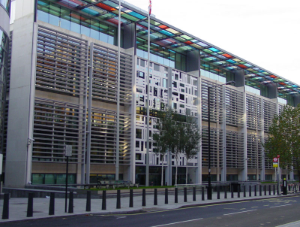New report says incomplete and unrealistic plan ignores the impact of a rapid clearing of asylum backlog
The House of Commons Public Accounts Committee on Friday published a report following an inquiry into the Home Office's transformation programme for the asylum system.
 Image credit: UK GovernmentYou can download the 24-page report here or read it online here.
Image credit: UK GovernmentYou can download the 24-page report here or read it online here.
As the report notes, the Home Office's asylum and protection transformation programme started in 2021, with four core objectives: improving the 'customer journey'; improving working experience; improving public and partner trust; and creating a flexible, sustainable and efficient asylum system.
The Public Accounts Committee's six key conclusions in the report are as follows:
- Despite the Home Office's confidence that it will clear the backlog of legacy asylum decisions by the end of December, it still faces a huge challenge to do so.
- The focus on streamlining decision-making may inadvertently lead to more flawed decisions, or the withdrawal of genuine asylum claims.
- The Home Office does not have a credible plan for ending the use of hotels to accommodate people waiting for a decision and the unacceptable cost this creates.
- The Home Office is failing to engage meaningfully with local authorities on decisions that affect their residents and already strained public services.
- The Home Office does not have adequate safeguards to protect against the risks of vulnerable people having to share accommodation with strangers.
- The Home Office failed to convince the Public Accounts Committee that it understands the full implications of its programme on the wider asylum system, affecting the ability of others to plan.
In the report's summary, the Committee explains further:
"The Home Office's failure to process asylum claims efficiently has led to unacceptable costs to the taxpayer. In 2022–23 the Home Office spent £3.6 billion supporting destitute people who are waiting for it to make a decision on their future. Since we took evidence, the Home Office has published data showing that 175,000 people were waiting for an asylum decision at the end of June 2023, a 44% increase over the previous 12 months.
"Despite claiming to have increased the number of asylum decisions it makes through its asylum and protection transformation programme (the Programme), the Home Office still faces a huge challenge to clear the backlog it has allowed to build up. We are concerned that the way the Home Office has increased the number of decisions it makes, by introducing poorly designed questionnaires and assuming claims are withdrawn, may mean that people with a genuine need for asylum will not have their application properly considered.
"The Home Office's plans for finding accommodation for people seeking asylum are also in doubt. Through the Programme, the Home Office initially expected to find a total of 500 new beds every week to accommodate people currently in hotels, but it has found, on average, only 48. It seemingly has no plan for how it will acquire enough accommodation in local areas to end its reliance on hotels. The Home Office's current plan, to make potentially vulnerable people share rooms with someone they may never have met, has not been thought through. We were not convinced that the Home Office has considered the trauma some people seeking asylum will have faced, or the protections required to ensure it is implementing room-sharing safely. The Home Office presented this 'plan' to local authorities as a fait accompli, rather than an issue for discussion.
"We were also concerned that the Home Office did not seem to understand the implications of making more asylum decisions on the wider asylum system. The Home Office acknowledged that making more decisions will mean courts hear significantly more appeals and Immigration Enforcement will need to detain and remove many more failed asylum seekers. But the implications of this will not be set out in a proper business case until 2024, after the deadline the Prime Minister set for clearing the backlog of older cases. By this point, it will be too late for the courts and Immigration Enforcement, as well as local authorities and the Department for Work & Pensions, to make informed preparations. Unless the Home Office improves its understanding and communicates this across the system quickly, people seeking refuge may just be passed from one backlog in the Home Office to another backlog elsewhere in the system."
Meg Hillier MP, Chair of the Public Accounts Committee, added: "The Government must lay out a realistic and detailed plan for transforming the asylum system in its updated business case, or risk making a bad situation worse."